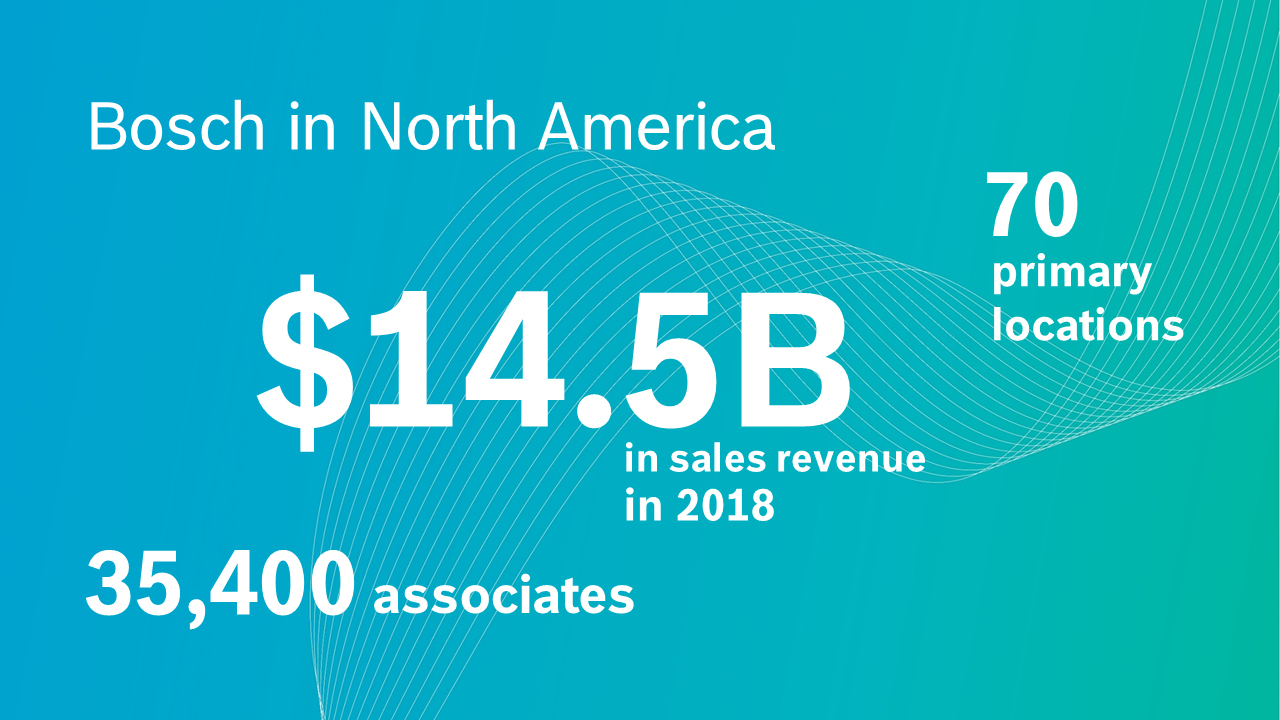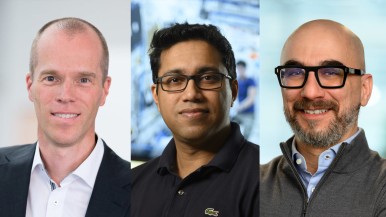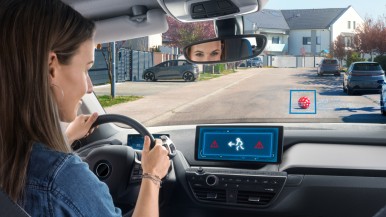Continuous investment in North America
Bosch invested more than $500 million in North America in 2018. The investment, primarily for Bosch’s Mobility Solutions business sector, went toward expanding manufacturing operations, including new equipment. In addition to expansions of Mobility Solutions plants in Charleston and Anderson, South Carolina, as well as a dishwasher plant and central distribution center in New Bern, North Carolina, the company is investing $120 million in a new plant in Celaya, in the Mexican state of Guanajuato. The approximately 225,000-square-foot facility will manufacture electronic control units – key components for connected mobility – for the American market. In November 2018, Bosch opened a new technology and innovation hub in Guadalajara, Jalisco, Mexico.
Bosch expects to invest a similar amount in North America in 2019.
Positive development across all Bosch business sectors
Bosch’s four business sectors – Mobility Solutions, Industrial Technology, Consumer Goods, and Energy and Building Technology – all saw growth in North America in 2018.
Mobility Solutions is Bosch’s largest business sector. With sales of $9.5 billion in 2018, the sector accounted for 66% of Bosch’s North American sales.
Bosch and Daimler announced last year that San José, California, would become the pilot city for an automated driving on-demand ride-hailing service. With their joint development work, Bosch and Daimler aim to improve the flow of traffic in cities, enhance road safety, and provide an important building block for the way traffic will work in the future.
Continuing to build its capabilities in the area of mobility services, Bosch invested in Mojio, a technology platform and SaaS provider for connected cars. Bosch and Mojio also signed an innovation agreement to co-develop a suite of advanced connected car services. At CES 2019, the organizations announced their first connected mobility joint development, an IoT-integrated emergency response solution.
Bosch also announced a strategic technology partnership with SiTime Corp. to accelerate innovation in micro-electro-mechanical systems timing. SiTime will work with Bosch to develop processes for next-generation MEMS resonator products. These MEMS resonators enable higher speeds of 5G, long battery life of IoT devices and increased reliability of driver assistance systems.
Consumer Goods, at $2.6 billion in sales, composed 18% of sales in North America. In this sector, Bosch is known for its home appliances and power tools.
Bosch Home Appliances recently announced that it is expanding its Home Connect™ kitchen suites lineup with new connected refrigeration, wall ovens, induction cooktops and ventilation. Features include Amazon Alexa voice-control interface, security through remote monitoring, and interaction with digital and physical products from the robust Home Connect partner ecosystem.
In the power tool market, Bosch continues to solve problems for its users. For example, Bosch Nail Strike is the first wood-boring bit to withstand nail hits – as many as 30 per bit.
Industrial Technology’s $1.5 billion in sales equates to 10% of Bosch’s North American sales in 2018. The sector has long been focused on Industry 4.0, or Connected Industry. Exchanging information among people, machines, parts and products shows how Bosch uses its expertise across software, sensors and services to improve operations.
Bosch Rexroth’s Factory of the Future offers remarkable adaptability, with the walls, floor and ceiling of the facility remaining fixed, while everything else inside the factory is mobile. Assembly lines are modular, with machines that move and reorganize themselves for each application. Wireless power and data communications are delivered to each machine through the factory’s intelligent floor. Bosch is in a unique position as both a key developer as well as a key user of this technology, so this vision is already reality in many of Bosch Rexroth’s plants today.
Energy and Building Technology’s sales, at $900 million, reflect 6% of the total sales in North America.
Bosch recently launched a fixed-dome security camera series with wireless remote commissioning capabilities, allowing the use of an app to position the camera once it has been mounted. Installation and setup time are reduced by up to 75%.
At the Smart Columbus Experience Center in Ohio, Bosch shows how intelligent sensors can be used to create safer and more sustainable ecosystems. Using Video as a Sensor technology, Intelligent Video Analytics classifies and counts pedestrians, bicyclists, cars and trucks at intersections, on highways and at curbs in order to measure traffic flow and detect lane changes and pedestrians in the crosswalk. This technology has the potential to improve not only traffic efficiency but also safety.
Research and Development
Last fall, Bosch announced a research partnership with Astrobotic Technology Inc. to send experimental sensor technology, called SoundSee, to the International Space Station (ISS) as early as this year. Bosch’s SoundSee technology is a deep audio analytics capability that uses a custom array of microphones and machine learning to extract actionable information out of noise patterns. SoundSee’s analytics will investigate whether audio data from machines and equipment onboard the ISS can be analyzed to detect anomalies and improve Space Station operations.
Bosch is building up a team of leading AI experts at its Pittsburgh Technology Center. The Bosch Center for Artificial Intelligence Research Lab opened there last year to conduct advanced research in AI technologies. Bosch also announced at that time that it would provide more than $8 million to sponsor AI research at Carnegie Mellon University. The BCAI Research Lab is the second BCAI location in the U.S. Established in 2017, the BCAI initially brought together global expertise from Sunnyvale, California; Bengaluru, India; and Renningen, Germany, to deploy cutting-edge AI technologies across Bosch products and services.
Climate action and air-quality measures
One of Bosch’s values is responsibility and sustainability. Bosch is intensifying its efforts to combat climate change and improve air quality. Bosch in North America is committed to Bosch Global’s initiative to be climate-neutral as early as 2020.
At the annual press conference in Renningen, Germany, Dr. Volkmar Denner, chairman of the board of management of Robert Bosch GmbH, said, “Climate change is not science fiction; it’s really happening. If we are to take the Paris Agreement seriously, then climate action needs to be seen not just as a long-term aspiration. It needs to happen in the short term.” He added, “We’re also committed to meeting public demand for good air quality in cities. As an innovation leader, we want to deliver technological solutions to ecological problems.”
An example of these efforts to reduce its CO2 output is in San Luis Potosi, Mexico. There, power sourced from the Dominica wind farm covers more than 80% of the energy requirements of all Bosch locations in Mexico. And in Charleston, South Carolina, Bosch is using tools like the Bosch Energy Platform to identify high-energy-usage equipment and deviations from known benchmarks. In this way the Charleston site has reduced carbon emissions by more than 30% in the last decade, even while increasing production output.
Ongoing commitment to communities
As part of its culture, Bosch has a history of investing in the community. This care for the community is exemplified both in funding and in volunteering.
The Bosch Community Fund has awarded nearly $25 million in grants to educational institutions and non-profit organizations since 2012. The U.S.-based foundation focuses on the enrichment of science, technology, engineering and math (STEM) education and environmental sustainability. Building on a seven-year program, the Bosch Community Fund now awards grants in 45 communities where Bosch is located.
Many Bosch associates throughout the U.S. volunteer with STEM programs in their communities. A good example of this is FIRST® (For Inspiration and Recognition of Science and Technology). Bosch began supporting FIRST in 2008 and has continued to increase its investment. Total investment is now more than $700,000 annually, and Bosch committed to becoming a FIRST Strategic Partner in 2018. In addition, more than 120 Bosch associates will volunteer more than 30,000 hours this season, mentoring students on 115 robotics teams.
The focus on providing STEM experiences to families continues through “The Bosch Experience, Powered by Mind Trekkers.” Through this partnership with Michigan Technological University’s Mind Trekkers student group, the team brought science and technology to several science festivals near Bosch locations in the U.S., bringing science to life and providing children with role models for careers in STEM.
Bosch Group outlook 2019
The Bosch Group expects global economic development to be subdued in 2019. Despite the difficult environment in industries and regions that are important for the company, Bosch expects its sales in the current year to slightly exceed their 2018 levels.
Bosch North America Factsheet 2019






